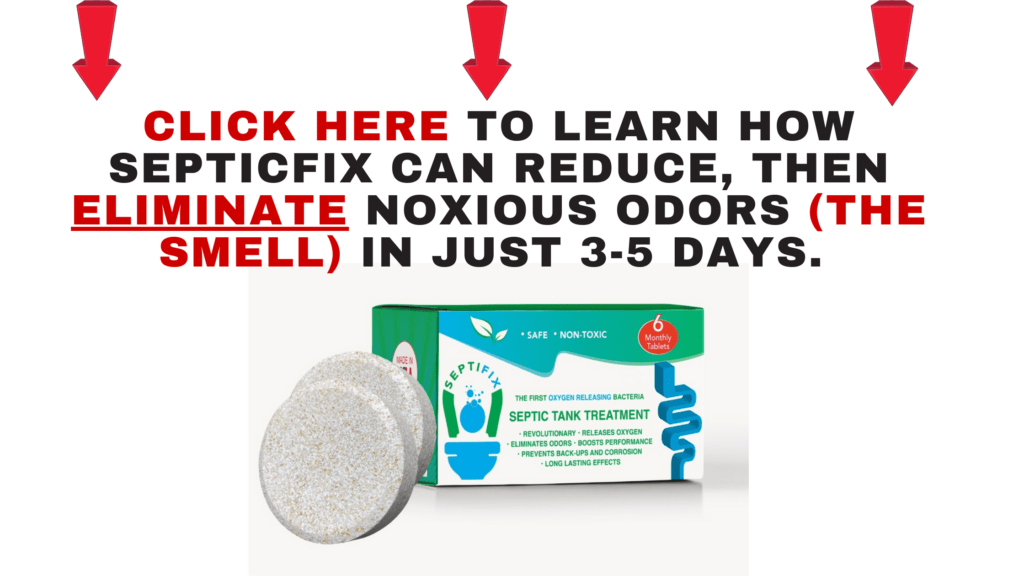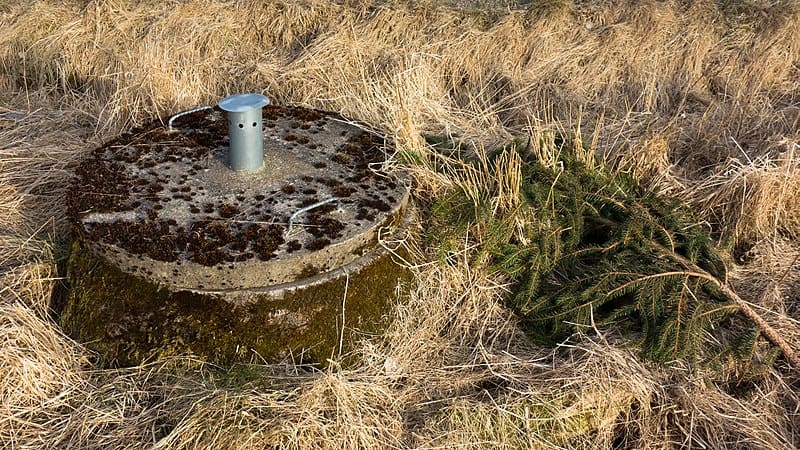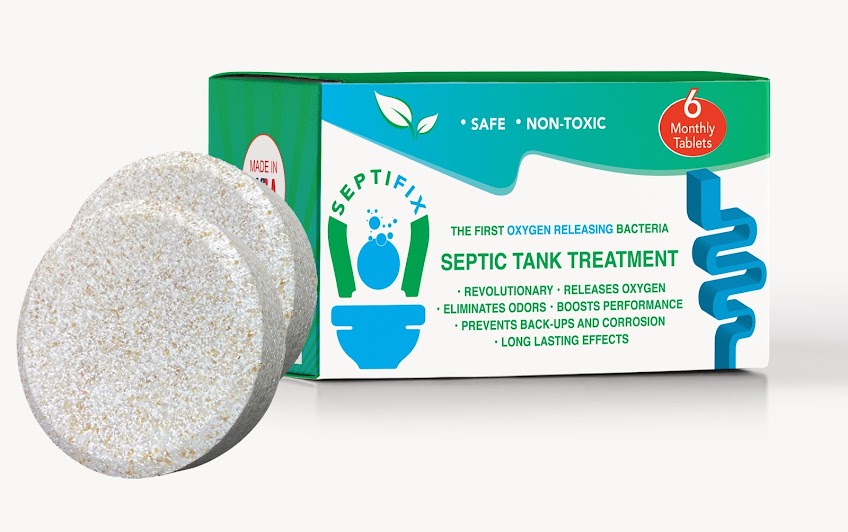Reasons Why A Septic Tank Might Smell
A well-maintained septic tank is generally free from odor, and so if you begin to notice a foul smell inside your home, out on your yard, or within the area near your drain field, you should take it as an indication that there’s a problem within your septic system. Take note, though, that bad smell coming from your septic system does not necessarily mean that your septic tank needs to be pumped out. Septic system odors are generally caused by gaseous matter within the system, including carbon dioxide, hydrogen sulfide, and methane. Not only can the odors that these substances produce be annoying, but a high enough concentration of these gases can be highly toxic, or worse, even an explosive risk. Here are some common causes of – and what you can do about — septic tank smell.
If you are concerned that the smell from your septic tank is emblematic of a bigger septic system problem, we recommend contacting a septic tank professional to investigate and remedy the smell as quickly as possible. Call this number for a local septic system professional 1.855.925.0760
When there’s a septic smell inside the home:
A septic odor inside your home usually means there’s trouble within your plumbing system. However, not all of these issues immediately require a professional plumber. Evaluate the cause/s of the odor first.

| Cause | What You Can Do |
| The floor drain trap in your basement could have dried out, allowing septic tank gases to flow back into the house. | Make sure that you periodically fill the drain traps with water to avoid this. |
| The cleanout access plug inside the drain is possibly loose, allowing sewer gas to leak. | Contract a licensed plumber to check the plug and clean the line. |
| The plumbing vent on your roof could be clogged. One way to know this is if your tub, sinks or toilets are making gurgling sounds. | If the vent is just frozen shut, it will thaw when the temperature goes back up. But if any debris is clogging the vent, clear these out. |
| The seal on the ejector sump pump basket may have come loose or broken. | Secure or replace the basket seal. |
| If the odor is noticeable only in the bathroom, it could just be that your toilet wax seal has dried out. | Remove the toilet and install a new wax ring. Note that if the toilet flange was not raised above the floor, you may stack two seals on top of each other. |
| There could be a hole or leak in a plumbing joint, drain line, or under a sink. | A licensed plumber is able to check and effect necessary repairs. |

When there’s septic smell outside the home (near the septic tank area):
An occasional faint odor surrounding the area of your septic tank is quite normal, but an especially strong odor could be an indication of a leak from the manhole or unfavorable chemistry inside your septic tank which kills off the helpful bacteria. In order for helpful bacteria to survive and aid the digestion of solid wastes, the pH level must be maintained between 6.8 and 7.6. When acidity inside the septic tank rises, a pungent hydrogen sulfide gas odor (similar to the smell of rotten eggs) can occur.
| Cause | What You Can Do |
| Sewage gas escaping through the manhole cover. | Check the risers and manholes to make sure they’re covered securely. Replace or repair as necessary. |
| Faulty rubber seal on a plastic manhole lid. | Ensure that the rubber seal is tight and secure. The lid should be secured with fasteners (such as lag screws). |
| Corroded concrete manhole lid. | A leaky concrete manhole lid may be sealed with weather stripping temporarily in order to contain the odors until it can be repaired. |
| If your property is in a low-lying area or physically situated where there may not be enough winds to disperse the odors away | Contract a plumber to extend the plumbing vent pipe to help the wind diffuse odors better |
| Install a carbon filter to the top of the plumbing vent to help reduce septic odors. Ideally, these filters will need to be replaced approximately every 1-5 years | |
| Imbalanced septic tank chemistry detriment to helpful bacteria | Never flush down inorganic/non-biodegradable waste down the toilet |
| Avoid pouring fats, oils, coffee grounds, cleaning products, paints, or other chemicals down your sink or drains | |
| Pouring a cup of baking soda to a sink drain or toilet once a week to help maintain the correct pH level in your septic tank |
When there’s a septic smell in and around your drainfield:
The drainfield is your “soil treatment area”. Ideally, there should be no strong smells coming from said area. Otherwise, there is a possible issue that needs immediate addressing. Remember that, regardless of the cause of the smell, leaking sewage poses severe health risks for both humans and animals.
| Cause | What You Can Do |
| Crushed or broken septic pipes. | Call your local septic specialist for inspection and necessary repairs. |
| Tree roots growing into septic pipes causing a blockage. | Call your local septic specialist for inspection and necessary repairs. Trees need to be maintained away from your septic tank. |
| Sewage is rising to the ground’s surface. | Inspect your drainfield for areas of soggy or wet patches of soil. Call your septic provider immediately. |
How to Prevent Septic Odors

Your septic tank has the potential to develop odor that can be released into your surroundings. The odor stems from a highly acidic pH level in the tank. Bacteria thrive in the septic tank and digest the organic matter. In turn, these bacteria produce large quantities of hydrogen sulfide, methane gas, carbon dioxide, and organic acids. These by-products cause the highly acidic pH level and deters the microorganisms from properly digesting the organic matter – resulting in hydrogen sulfide gas which smells like rotten eggs. If you encounter this problem, there are DIY treatments to your septic tank and foster a less acidic pH level. You can likewise take other steps to prevent septic tank odor problems.
Once every week, pour one cup of baking soda down any toilet or drain in order to maintain a healthy pH level of 6.8 to 7.6 in your septic tank.
Avoid using more water than is actually necessary. Excessive use of water will cause you to flush the baking soda out of the septic system more quickly and also force undigested waste out of the tank before the microorganisms have had the chance to process them.
Never flush inorganic items down the toilet, or objects that the septic microorganisms are not able to digest. Do not flush or drain coffee grounds, plastic materials, cigarette butts, cat litter, non-biodegradable tissues, diapers, and the like. These items belong in the trash.
Finally, get a septic tank cleaning professional to pump out the accumulated waste in your tank routinely and periodically, ideally every three to five years.
Is the Smell of Septic Harmful?
Septic tanks can be potentially dangerous as they contain various toxic sewer gases which pose health risks when inhaled. Sewage gases are composed mainly of highly toxic methane, especially in high concentrations. Aside from possible methane gas explosion and asphyxiation hazards, septic tanks present other serious hazards such as septic tank collapse or cave-in, as well as health risks like bacterial or viral infections caused by unsanitary conditions. This is especially possible if the septic tank system has been neglected and not subjected to proper routine maintenance and monitoring.
Septic system fumes are harmful blends of sewage gases that pose potential risks to health and safety, both of humans and animals. Sulfide gas is one of the septic system fumes that have the ability to irritate your nasal passages. Airborne bacteria are also prevalent within the septic system fumes that people and pets may inhale. These may cause potentially serious respiratory infections. Septic system fumes may also carry pores of mold that could cause harm to your physical property, as well as to everyone’s respiratory health.
Septic Tank Health Risks
A failing septic tank system poses a number of physical hazards and health risks, both inside and outside of your home or business property. Every responsible property owner should make it imperative for everyone on the property to stay educated about the possible hazards and health risks if the on-site septic tank system has been lacking in adequate service, maintenance, and repair.
A poorly-maintained septic tank system may have become susceptible to collapse or cave-in over time, risking injury to people and pets with even the slightest of external force or pressure. Merely stepping on a cracked or compromised tank cover can be highly dangerous.
A failing septic tank has the great potential to release fumes from the various toxic gases that have likely accumulated within it. Methane, as earlier mentioned, is highly flammable and toxic to both humans and animals. Another common septic emission is sulfide gas that can possibly cause severe health risks. When you notice a smell similar to that of rotten eggs’, this is caused by sulfide gas and prolonged exposure to it can cause irritation in one’s mouth, nose, and throat. Septic tank fumes likewise typically carry airborne bacteria, which are leading causes of sinus infections and a whole host of other respiratory infirmities.
Additionally, your home or business property will be highly vulnerable to mold spore growth due to a failing septic system. This can be quite problematic for adults and children with mold allergies and/or asthma. If left unchecked, these spores will facilitate rapid mold growth in parts of your home or office that have high concentrations of moisture buildup (like in basements and bathrooms). Mold repair can be quite expensive, not to mention difficult, and this is why it is crucial to address any failure in your septic system as promptly as possible upon the first and early signs.
Septic-safe Treatments and Cleaning Products
Septic systems, generally, are able to handle most chemical cleaning products in the market, however, moderation is key. The use of too much synthetic chemicals can alter the bacterial balance in your septic tank. This bacterial imbalance causes problems within the entire septic system like clogging, groundwater pollution, and malfunctions in the leach field or drainfield. When excessive amounts of synthetic chemicals are introduced into the system, that’s when troubles begin. The use of septic-safe products (as indicated on the label) is recommended. Many common household products bear these septic-safe labels and it is always best to check before using them. Biodegradable or environmentally-safe products are likewise perfectly safe for use with septic systems.
All-Purpose Cleaners. Mild detergents, like laundry detergents or any other detergent cleaners that can be applied without requiring the use of gloves, are generally safe for use with septic systems. Phosphate-free, low-sudsing detergents are best to use. Natural detergents and other multi-purpose surface cleaners are also generally safe and will not damage your septic lines or the bacteria inside the septic tank. You will want to look for all-purpose cleaners that are non-toxic, biodegradable, and chlorine-free.
Water-Based Cleaners. Most water-based cleaners, such as water-based carpet cleaners, tub and toilet cleaners, and disinfectants are safe to use with your septic system. Water-based cleaners will not contain harsh solvents that can cause damage on septic systems. Water-based cleaners would always list water as the first ingredient on its labels.
Household Bleach. Cleaning products containing bleach are generally safe for use with septic systems, but only in small amounts. Bleach is a chemical that has the ability to kill bacteria. It is best to dilute bleach in water in household applications to reduce its potency to kill off the healthy bacteria inside your septic tank. Use alternatives to bleach, whenever possible, to help protect the helpful bacteria in your septic tank.
Ammonia Cleaner. When used as indicated, pure ammonia and cleaning products containing ammonia are also considered safe for septic system use in moderation. Ammonia does not kill the healthy bacteria in the septic system, nor will it leach into the groundwater. But, just like bleach, it should be used in small amounts. But always remember to be careful not to mix chemicals like bleach with ammonia together.
Natural Biological Solutions. Cleaners and deodorizers that are made of safe and effective beneficial microorganism-enzyme catalyst solutions are best. There are environmentally-friendly biological treatments that are safe to use around humans and animals available in the market. Natural biological solutions contain non-toxic naturally-sourced ingredients free of any harsh and corrosive chemicals. There are some natural solutions in the market that rapidly digest different types of organic wastes in septic tanks and clogged drainfields. This facilitates rapid elimination of putrid odors, backups, wet spots, slow drains and slow flushing toilets.
Household Staples. To err on the side of caution, know that items that you typically have around the house like baking soda and vinegar can actually double as septic-safe cleaners. Baking soda and vinegar can be used to disinfect surfaces, deodorize, whiten, and soften. Use it to naturally clean your toilet, or use it to scour hard-to-clean surfaces or areas.
Household cleaners that are safe for septic systems and can make your life easier (and more affordable, too). Though, as with everything else, anything in excess can be harmful. Bear in mind that improper and excessive use of baking soda and vinegar may likewise upset the necessary pH balance in your tank.
Is baking soda and vinegar safe for septic systems?
You can be assured that vinegar and baking soda are safe, inexpensive, and effective cleaning agents for your toilet bowls and drains. Baking soda and vinegar are safe biodegradable cleaners that are definitely better than the synthetic, non-biodegradable cleaning products which, with excessive use, can be damaging to your septic system. Using more natural and common household staples like baking soda and vinegar instead of chemical cleaners will keep the important bacteria in your septic system from being killed off.
Whatever you pour down any drain affects how you keep your septic system in good working order. Harsh cleaning chemicals are typically synthetic and can actually eat away at the good bacteria in your entire septic tank system. The absence of this good bacteria in your septic system will hamper the bacteria’s ability to organically process waste, eventually causing clogs, back-ups, and foul odor that will wear away at your septic tank and, eventually, lead to serious septic system problems requiring expensive repairs. A much better alternative is to use baking soda for cleaning your bathroom. Relatedly, vinegar is a typical additive to baking soda mixtures intended to clean bathroom and kitchen sinks and surfaces.
Home and business owners, with dedicated septic tank systems on-site, might often encounter problems relating to foul smells emanating from (or because of) the septic tank. Although this is somewhat inevitable, some simple steps can be taken in order to prevent the occurrence of foul septic smells, as well as control the intensity of the smells. Not only are septic tank smells in the home irritating, but they are also hazardous to health and well-being. Regular maintenance of the whole septic system is perhaps one of the best investments any home or business owner can make for his or her property. Routine and stringent maintenance of your septic system will certainly save you from the inconvenience and worry of very costly emergency system repairs, not to mention the cost of addressing health and danger risks to you and your loved ones.
Find Local Septic System Professionals Below
Visit our State Directory For Local Septic Pumping Service Providers
https://dsenvironmental.ie/news-blog/item/causes-foul-smells-septic-tank
https://www.candwplumbing.com/drain-cleaning/septic-smell-in-house/
https://www.owlshall.co.uk/sewage-treatment/knowledge-base/why-does-my-septic-tank-smell/
https://www.baileyplumbingokc.com/blog/plumbing/how-to-reduce-septic-tank-odor.php
https://www.hunker.com/13408345/how-to-eliminate-septic-tank-odor
https://medcraveonline.com/JACCOA/JACCOA-06-00228
https://www.wte-ltd.co.uk/septic_tank_dangers.html
https://www.ublcorp.com/septic.html
https://www.hunker.com/13420766/the-best-products-to-use-for-cleaning-homes-with-septic-systems










